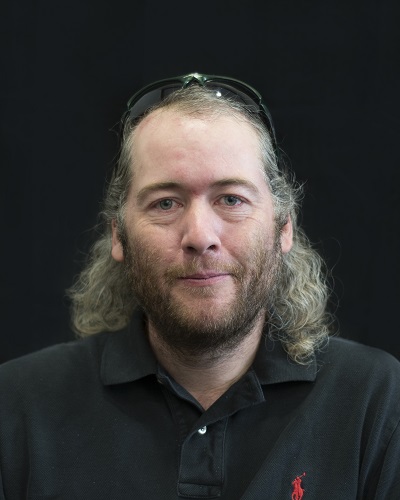Dr. Andrew Garner
Professor
Academic Areas of Expertise:
American and Comparative Politics, Research Methods
Biography:
Andrew grew up in the western suburbs of Atlanta and received his bachelor's degree from Kennesaw State University in 2002. He moved to northern Mississippi and completed his Ph.D. from the University of Mississippi in 2007. His major area of specialization is American politics with minor areas of specialization in Comparative Politics and Research Methods. In 2005, Andrew also received a Clogg Scholarship to study advanced statistics at the ICPSR Summer Program in Quantitative Studies at the University of Michigan.
Andrew's teaching interests include American and Comparative political behavior - voting and elections, participation, public opinion and political parties - as well as democratization and regime change and research methodology.
Current Research Interests/Projects:
American Political Behavior: Public Opinion, Voting and Participation in Elections, Party Identification
What are the major causes of polarization among the American public, including which citizens are polarized and along which dimensions? This includes ideological polarization, partisan “sorting”, and “negative partisanship” where citizens view the other party more negatively.
What is the nature of party identification or partisanship, how does it connect to people’s policy and issue opinions, and what causes party identification to change over time?
How do citizens form their political opinions on issues, approval ratings of political figures and institutions, and what are the psychological and cognitive processes that drive the formation of these opinions?
Why do some citizens engage in political participation while others do not? My past research examined turnout among American Indians over time, finding that the turnout "gap" has largely disappeared in recent years. Current research interests include how the effect of electoral institutions such as mail-in voting varies across generations.
Comparative Politics: Comparative Public Opinion, Vote Buying (and Other Forms of Corruption), and Democratization and Regime Change
“Vote Buying” is a practice where candidates and parties offer cash to voters, presumably in exchange for their votes. My current project examines the behavior of intermediaries called “brokers” in giving the money to citizens. It also examines citizens’ attitudes about the practice, including the meaning of elections and the money offered to citizens during these elections. My current research is in Indonesia, but vote buying occurs all over the world and I’m interested in learning about citizen attitudes about the practice in various regions (including Africa and Latin America).
Democratization and Regime Change: What causes authoritarian regimes to transition to democracies and what causes democracies to “die” over time by reverting back to authoritarianism. What is the role of factors such as modernization, oil and mineral wealth, religion, and political actors in this process?
Meaning of democracy: When ordinary citizens think about “democracy”, what does that term mean to them and how does that conception of democracy connect to various political attitudes such as distrust in government, support for democracy, and democratic outcomes?
Fun Facts About Andrew:
Hobbies include fly fishing, hiking, watching football and snowshoeing. Andrew also intends to take up ice fishing.


